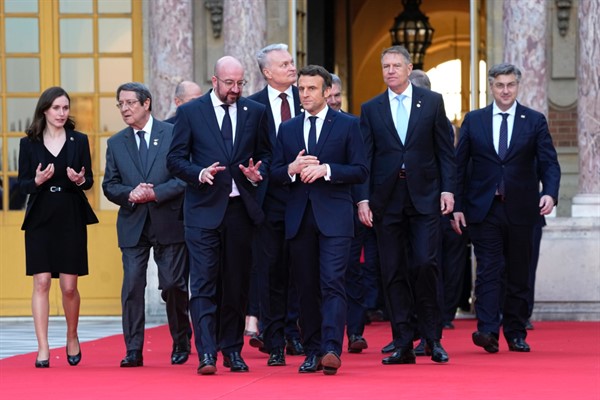The European Union’s 27 leaders are in Versailles today for a summit that could prove to be historic. They are expected to sign the “Versailles Declaration,” intended to formalize the far-reaching but ad hoc policy changes the EU has implemented in response to Russia’s invasion of Ukraine, which is now entering its third week. The measures under discussion would strengthen the union’s existing military, economic and border control capabilities, while also giving the bloc new powers in those areas that will push it further down the path toward federalism.
The symbolism of the decision to sign the declaration at the Palace of Versailles—where the Versailles Treaty, another pivotal document that proved central to the remaking of Europe after World War I, was signed in 1919—is not lost on anyone. In 1919, Europe’s leaders got it very wrong. Will they get it right this time? It’s very hard to say, since nobody knows what the world that emerges after the war in Ukraine will look like.
At the top of the agenda for the EU leaders’ discussion at the summit will be the military aspects of the war, which took on new urgency overnight, with the Russian Ministry of Defense having admitted to using thermobaric weapons in Ukraine and the U.S. warning that Russia may be preparing to use chemical weapons as part of a false flag attack as well. The bloc’s leaders will formalize last week’s historic decision to finance the purchase and delivery of $500 million worth of weapons to Ukraine, the first time in the bloc’s history that it will send arms to a conflict zone. They will also likely agree to increase funding for the European Peace Facility, which will be used to pay for the new weapons delivery program, although Germany remains skeptical, arguing that there remains a considerable amount of unspent money in the fund.

